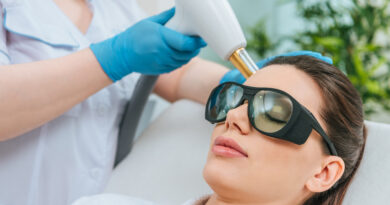Understanding the Causes of Pimples: A Comprehensive Guide
Understanding the Causes of Pimples: A Comprehensive Guide
Pimples, also known as acne, are a common skin condition that affects many people at some point in their lives. While they are often associated with the teenage years, pimples can continue to be a problem well into adulthood. Understanding the causes of pimples is an important part of managing this condition and finding effective treatment options. In this comprehensive guide, we will explore the various factors that contribute to the development of pimples, and discuss how they can be addressed.
What are Pimples?
Pimples are a type of skin condition that occurs when the hair follicles become clogged with oil and dead skin cells. This can lead to the formation of whiteheads, blackheads, and inflamed lesions known as papules, pustules, or nodules. Pimples can appear on the face, neck, chest, back, and shoulders, and can cause discomfort and self-esteem issues for those affected.
Causes of Pimples
There are several factors that contribute to the development of pimples. Some of the most common causes include:
1. Hormonal Changes: Hormonal fluctuations, particularly during puberty, menstruation, pregnancy, and menopause, can lead to an increase in sebum production. This excess oil can clog the pores and contribute to the development of pimples.
2. Genetics: Some people are more prone to developing pimples due to genetic factors. If your parents had acne, you are more likely to experience it as well.
3. Bacteria: The presence of certain bacteria, such as Propionibacterium acnes, can lead to inflammation and the formation of pimples.
4. Diet: While the link between diet and acne is still being studied, some evidence suggests that consuming certain foods, such as high-glycemic index foods and dairy products, may contribute to the development of pimples in some individuals.
5. Stress: Stress can trigger hormonal changes that lead to an increase in oil production and the development of pimples.
6. Skincare and Cosmetics: Using products that are comedogenic, meaning they can clog pores, or being too harsh with your skin can exacerbate pimples.
7. Medications: Some medications, such as corticosteroids, lithium, and certain oral contraceptives, can contribute to the development of pimples.
Treatment Options
There are several treatment options available for managing pimples, depending on the severity of the condition. Some of the most common treatments include:
1. Topical Treatments: Over-the-counter or prescription-strength creams, gels, and lotions containing ingredients such as benzoyl peroxide, salicylic acid, retinoids, and antibiotics can help to reduce the appearance of pimples and prevent new ones from forming.
2. Oral Medications: In more severe cases, oral medications such as antibiotics, hormonal therapies, and isotretinoin may be prescribed to manage pimples.
3. Professional Procedures: Dermatologists may offer procedures such as chemical peels, microdermabrasion, and laser therapy to help improve the appearance of pimples and prevent scarring.
4. Lifestyle Changes: Making changes to your diet, managing stress, and using non-comedogenic skincare and cosmetic products can help to improve the overall health and appearance of your skin.
Frequently Asked Questions
Q: Can I prevent pimples?
A: While it may not be possible to completely prevent pimples, there are steps you can take to reduce your risk. These include practicing good skincare habits, managing stress, and avoiding known acne triggers such as certain foods and harsh skincare products.
Q: Will popping a pimple make it go away faster?
A: Popping pimples can actually make them worse and increase the risk of scarring. It’s best to leave pimples alone and allow them to heal naturally, or seek professional treatment if necessary.
Q: Are there any natural remedies for pimples?
A: Some people find relief from pimples by using natural remedies such as tea tree oil, witch hazel, and aloe vera. However, it’s important to consult with a dermatologist before using any new treatments to ensure they are safe and effective.
Q: Can stress really cause pimples?
A: Yes, stress can trigger hormonal changes that lead to an increase in oil production and the development of pimples. Finding healthy ways to manage stress, such as exercise, meditation, and spending time with loved ones, can help to reduce the risk of developing pimples.
Q: When should I see a dermatologist about my pimples?
A: If you are unable to manage your pimples with over-the-counter treatments, or if you are experiencing severe or persistent acne, it’s important to see a dermatologist. They can provide personalized treatment options and help to prevent scarring.
In conclusion, understanding the causes of pimples is an important step in effectively managing this common skin condition. By addressing factors such as hormonal changes, genetics, bacteria, diet, stress, and skincare, it is possible to reduce the risk of developing pimples and find effective treatment options. With the right approach, it is possible to achieve clearer, healthier skin and improve self-esteem. If you have any further questions or concerns about pimples, it is best to consult with a dermatologist for personalized advice and treatment options.



